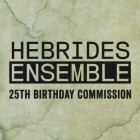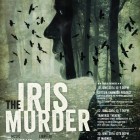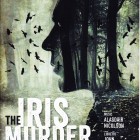Iris Murder 2016Hebrides Ensemble
Read more about the opera Iris Murder
The Iris Murder, a new chamber opera by Alasdair Nicolson and librettist John Gallas, had its world premiere performances in Glasgow, Edinburgh and Orkney. This is the first of two bold commissions from Scottish-based composers to mark the Hebrides Ensemble’s 25th birthday. John Gallas draws on an unfinished story by Stefan Zweig concerning the 'murder' of a flower and uses the term 'Eco-Allegory' in the programme notes.
The new opera introduces three mysterious characters: Rawley Beaunes, an enigmatic figure firmly rooted in thought and dress in the 1950s; the doomed Iris; and the ethereal Green Man. Gothic intensity blends with tender beauty in this gripping, ghostly tale where nothing is quite as it seems.
On one of his frequent visits to the woods, where he throws flowers on to odd mounds of earth, Rawley Beaunes unexpectedly encounters Iris singing. He angrily knocks her head off without a second thought. Back home, Rawley relaxes on the night of his 42nd birthday and reflects on his life. But The Green Man soon appears to hold Beaunes to account for killing Iris, as well as Poppy, Heather, Fern and Rose. Rawley’s punishment: to see the world in all its depravity and darkness before the spectral Green Man returns him to normal life. But what will happen on Rawley’s next trip to the woods?
The sound world created by Nicolson is quite fascinating. The three singers are backed by a quartet of musicians, with William Conway directing from the cello. The others were Yann Ghiro (clarinets), Djordje Gajic (accordion) and Joanne McDowell (percussion) and they provided an altogether unusual sound perspective, far more subtle than the battery of instruments on view suggested.
Vocal writing, too, was entirely felicitous, with the singers generally performing in a form of arioso that sounded immediately attractive. These were vocally demanding parts, exploring high and low extremes. Elizabeth Llewellyn, in lustrous voice, and Christopher Bowen, with an eerie high tenor, made excellent contributions. It must make for a particularly difficult launch of a new work if one of the singers catches cold. On this occasion the role of the Green Man was sung from the side in a highly accomplished manner by Oliver Hunt, while a voiceless Andrew Fellowes mimed on stage. No damage seemed to be done to the piece, which was staged in a simple and effective manner, with particularly good lighting effects.











